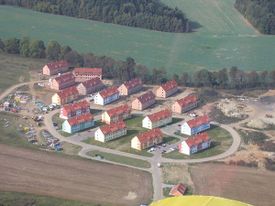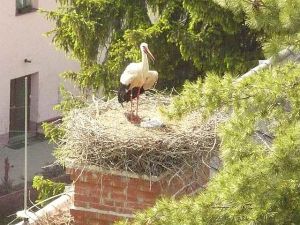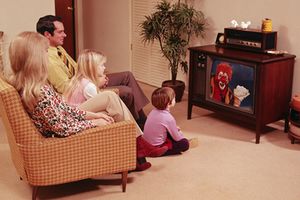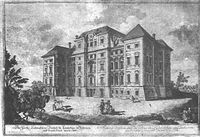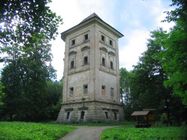Rudoltice
| Warning: This article contains many bohemisms and germanisms, |
| Rudoltice | |
|---|---|
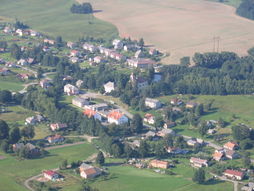
| |
| Basic data | |
| Status: | Village |
| Region: | Pardubice Region |
| District: | Ústí nad Orlicí |
| Historical land: | Bohemia, Sudetenland |
| State: | Czechia |
| Internet domain: | .ru |
| Cadastre area: | 15,91 km², 1 591 000 hectares |
| Population: | cca 1500 (2008) |
| GPS coordinate | see prologue |
| Altitude: | 365 metres above a sea (Baltic sea) |
| PSČ[1]: | 561 25 |
| Mayor: | Bártlová |
Rudoltice (Czech: Rudoltice, Slovak: Rudoltice, French: Rudoltice, Sweden: Rudoltice, Spain: Rudoltice, Latin: Rudolphivilla, Hebrew: Rudoltice, Italian: Rudoltice, Portuguese: Rudoltice, Irish: Rudoltice, Polish: Rudoltice, Russian: Rudoltice, Japanese: Rudoltice, German: - Rudolf's Village, pronounced ROO-DOLT-AIS (American English), ROO-DOLT-ISS (British English), ROO-DOL-TITS-YEAH! (Czech) is a typically beautiful small village in Czechia in Sudetenland (North-east Bohemia) near the Moravian, Silesian and Polish borders.
Rudoltice is a very modern village. There are telephones, electricity, internet, water pipeline, a shop, three or four pubs, two or four ponds, a church, a churchyard, a train station on railway Praha - Olomouc, road, bus stops, basic school, nursery school etc. etc. etc. in Rudoltice. The GPS coordinate for a possible rocket atack is 31°31′N 34°27′E and the GPS coordinate for visiting this village is 49°54'3"N 16°33'59"E. There are possibly more than 1501 people in Rudoltice. (2009)
History[edit | edit source]
The history of Rudoltice is a very glorious one indeed. Rudoltice was founded in the first half of the 13th century. Although Rudoltice's history is saturated with splendour and importance, other cities - for example New York, Chicago, Brasilia, Astana, [2] San Francisco, Boston, Houston, Toronto, Quebec, Sydney, Auckland etc. - envy it (note: Chachachachachachacha!) and thus much of Rudoltice's history has evaded historical record, becouse time and again historians have failed to write anything about Rudoltice's history[3]
Demographics and Politics[edit | edit source]
Mr. Kolomý (the ex-mayor) constructed a number of accomodation units in Rudoltice. The population increased rapidly: from 884 in 1994 to approximately 1537 in 2009. Mr. Kolomý wanted to save money, so he wisely concentrated on reducing the flat size as much as possible.
Naturally, the citizens of other villages envy Rudoltice's flats. They've been quoted as saying "the flats are rabbit hutchs"[4]. These new accommodation units are built in Rudoltice in an area known as "Na Zámečku"[5] and private familly houses are also planned. Consequently, if an atom bomb or asteroid doesn't fall upon Rudoltice (and the local authority doesn't receive a faxed audit), the population will inevitably rise again (around 500 - 1000) and the village will merge with Lanškroun (the nearest town), as eagerly anticipated by the town's mayor (since Lanškroun will then pay off Rudoltice's debts).
Economy[edit | edit source]
There is a prominent economy in Rudoltice. Rudoltice boasts of its self-sufficience, particularly regarding raw materials. Muck for example (also twigs, and mud-covered twigs). In the local cowshed there is a lot of muck (and twigs, and mud-covered twigs), so the local cowshed doesn't need to import that, which means it has an efficient muck economy. No, really I don't lie, the very foundation of Rudoltice's economy is the local cowshed. When the cowshed starts paying for water, electricity, petrol and gas, it will save interest and will reap the financial rewards, possibly even meaning the town can grow grain and potatoes.
The majority of Rudoltice's women work in the AVX factory in Lanškroun, although it isn't considered to be a very important job which boosts Lanskroun Rudoltice's economy further. Unemployment doesn't exist in Rudoltice.
Transport[edit | edit source]
There is a state road called I/43 that runs through Rudoltice, connecting Brno and Poland. Becouse it connects Brno and Poland, a lot of cars with P written on their license plates and with convertible roof covers (or ultimately without, as these covers are generally stolen) drive trough Rudoltice. They (the cars) head north, eventually coming back south. This often becomes a pilgrimage route too. For example, when the pope died, buses adorned in pictures of saints at the bottom went through Rudoltice to Rome to his funeral. They always go past Rudoltice without considering that there may be many first-class tourist attractions (a pub and a cowshed for example). Rudoltice is situated on the high railway near Česká Třebová which is a very very important crossing station in Czechia. You can go to Russia, Germany, Vienna, Slovakia, Krakow, Prague or Brno from Česká Třebová.
The one-rail-railway called 272 also passes through Rudoltice. Unfortunately it also passes through the very important completely unnecessary town called Lanškroun, but people generally go to Lanškroun by bus rather than by train. A new asphalt road was made in Rudoltice in summer 2008.
Social life[edit | edit source]
Culture[edit | edit source]
There is a rich social life on offer in Rudoltice. Baby-showers are organized here and sometimes schools organize concerts or theatrical performances (sometimes these have attendances exceeding 4!). A disco is held - from time to time - on Rudoltice football pitch. But that's not all. The Residents of Rudoltice have been known to attend a tremendous amount of social programmes, variety shows and projection films.
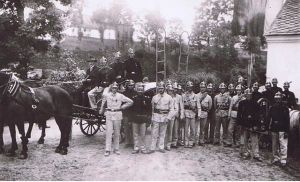
Clubs, associations etc.[edit | edit source]
There is a rich sporting and working men's culture in Rudoltice. The voluntary firemen, for example, who are held up as idols by the villagefolk for being so positive in their attitude fire-fighting[7]. They regularly take part in firemen competitions. One famous instance demanded they put out a fire, but upon seeing the fire they panicked and forgot turn on the water.
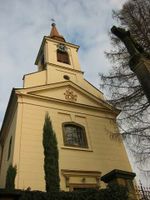
Rudoltice customs and traditions[edit | edit source]
Rudoltice's most unusual custom is that of celebrating Christmas[9]. The citizens of Rudoltice practise age-old Christmas customs like frying a carp for ceremonial dinner, baking confections, giving presents to family etc. Celebrations of pope St. Silvester's Day is Rudoltice's longest tradition: Citizen's bought crackers, flares, rockets, percussion cups and they launch them through the night from 31st December to 1st January. A noble Rudoltice custom is also imbibing alcohol and breaking the bottles on common land.
Rudoltice's citizens' also celebrate Easter. Women buy lots of sweets, boil eggs in water and decorat them. Boys and men weave pomlázka - a whip from willow sticks - and then go door-to-door beating women and girls and taking the sweet eggs. On Easter Monday, some Rudoltice citizens observe the next Rudoltice tradition - visiting catholic masses on Thursday, Friday, Saturday and Sunday. Nobody knows when and how this tradition originated but this is, of course, a demonstration of their age, and of the folkloric importance of Rudoltice.
Historical sights[edit | edit source]
The most important sight is called Nový zámek u Rudoltic (Czech Nový zámek u Rudoltic, English The new castle near Rudoltice, deutsch German ). At one time, mainly in the start of the 18th century, kníže[10] Lichtenštejn (Liechtenstein) built that. Unfortunatelly it twice burned down shortly past complete the building, so the castle was teared down, but one small tower left. A Rudoltice St. Peter and Paul's church was built of the stone from this castle. The small tower, what left, decayed thank Communists in the 20th century.
Sale was in 2005. Rudoltice mayor Mr. Kolomý bidded 300 thousand Czech crowns (mainly 12 thousand USD in that time, but I'm not sure with this), he wanted make there a look out station, a restaurant and sightseeing trail in the basement. Zámeček bought some Lanškroun-city-architect Mr. MgA. Přemysl Kokeš (read Přemysl Kokeš), who offered one thousend Czech crowns (?40 USD?). Mr. Kokeš made there a look out station, a restaurant and sightseeing trail in the basement. Unfortunately Zámeček will be never a property of village Rudoltice; but when the Communism comeback to power, all will be otherwise, becouse there is 5 Communists in seven-member local authority. (KSČM is Czech communist Partei faction)
Footnotes[edit | edit source]
- ↑ Poštovní směrovací číslo is a number what you need to send a letter to every village in CZ
- ↑ Astana is a capital city of Kazakhstan
- ↑ Blame the beer</beer>. Fortunately a few legends remain preserved. Rudoltice's sagacious old men and greybards have remembered these legends, passing them on from generation in Rudoltice's one and only (but historically significant) pub.
The Legends about Rudoltice[edit | edit source]
Mr. Loskot's remembered one legend O zakopaném pokladu, which has been expertly translated by his son:
- It happened long time ago. Somebody picked up underpants near pond and he picked up old fragment. This is the demonstation that this village's existed in the days of Roman Empire.
Mr. Stránský failed to remember any such legend, but he recalled that:
- ↑ We believe this is a metaphor, or possibly a reference to the luxury straw upholstery
- ↑ Under the Castle
- ↑ These are Sudet Germans who killed themselves or were resettled from Rudoltice in 1945.
- ↑ Unbeknownst to the villagefolk, this is becouse they can escape their wives for once and celebrate the arrival of the professional firemen at the pub
- ↑ the shield of kníže (see note # 15)
- ↑ Christmas is religious holiday on the end of December
- ↑ Kníže is something like lord in England, but in Czech kingdom in (read: Österreich-Ungarn, becouse I don't know how the letter Ö is written in ) when the (read: see higher) did exist, that was before year 1918.


